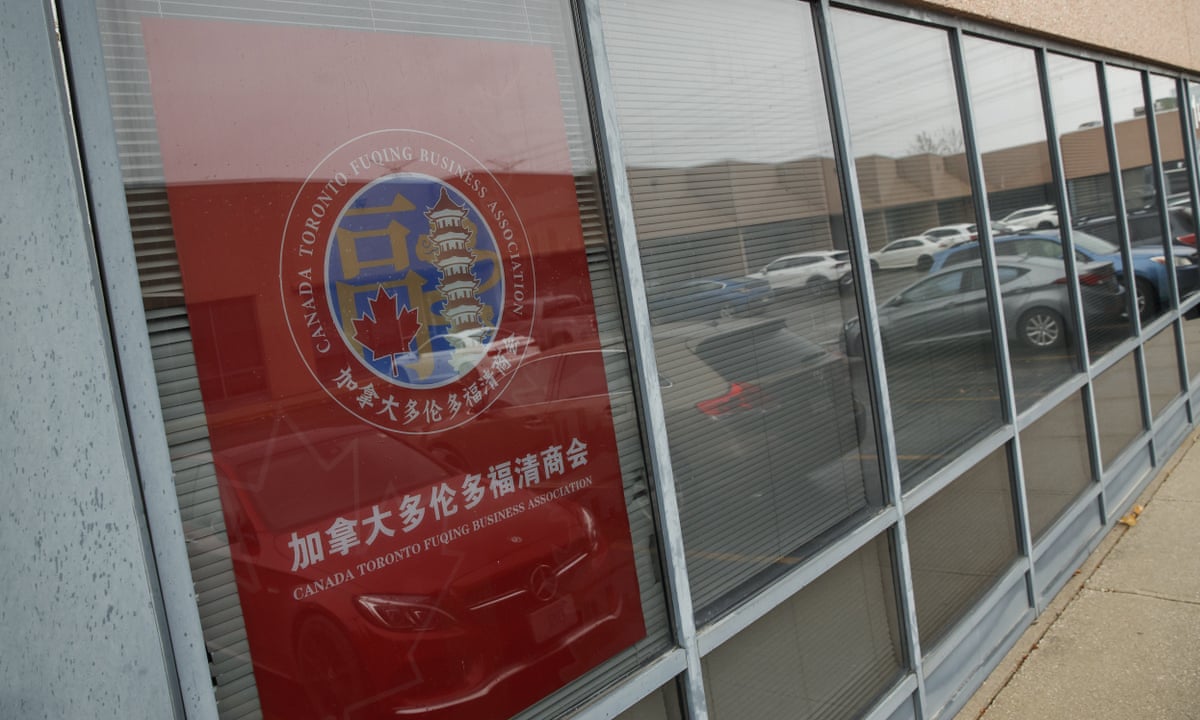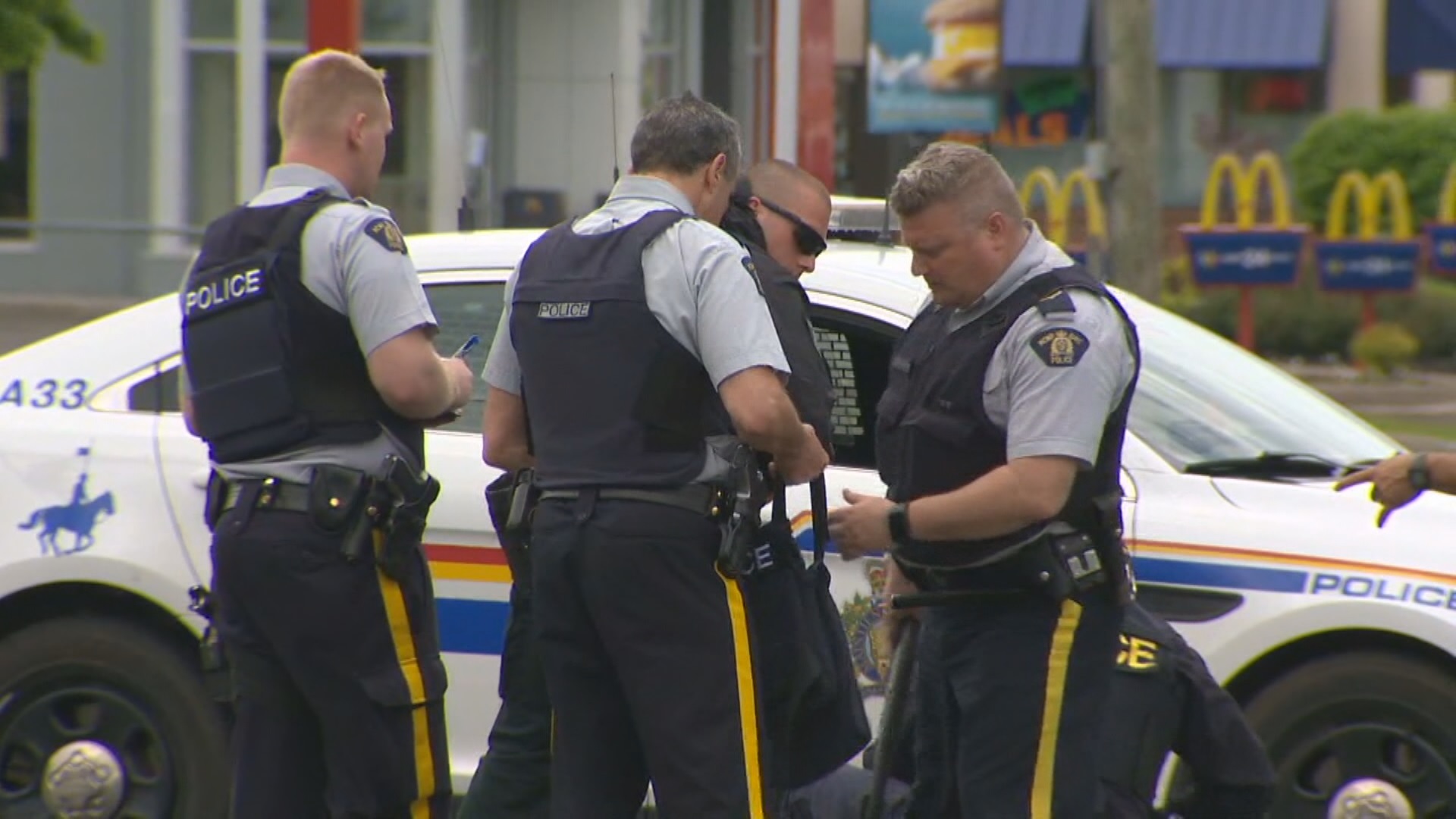News
RCMP Open Investigation into Chinese Police Stations in Canada, Trudeau Backpedaling

The RCMP in Canada has told a press briefing they are investigating reports of undeclared Chinese police stations in the province of Quebec. They stated they are investigating 2 Montreal locations believed to be operating on behalf of the Communist Party of China.
Human rights organizations have accused China of using the stations to threaten and monitor Chinese nationals in other countries. China has denied operating the stations, referring to them as “service centers” for its nationals living abroad.
Prime Minister Justin Trudeau told reporters Thursday that they are a “very serious concern” for his government.
“We’re in the process of ensuring that the RCMP follows up on this and that our intelligence systems take this seriously,” he said.
According to the Spain-based NGO Safeguard Defenders, which monitors disappearances in China, the stations are among at least 100 in 53 countries worldwide, including the United Kingdom and the United States.
In a report last year, the non-profit said the stations are part of efforts by China’s regime to “harass, threaten, intimidate and force targets to return to China for persecution”.

According to the report, Chinese public security bureaus established “overseas police service stations” across the globe, including two in London and one in Glasgow. It established stations in Toronto, Vancouver, and New York.
The RCMP confirmed in November that they were looking into reports of such service stations operating in the Greater Toronto Area.
The federal force asked Chinese Canadians who may have been targeted by “alleged Chinese police stations” to come forward on Thursday.
“These activities, as well as any other form of intimidation, harassment, or targeting of diaspora communities or individuals in Canada,” RCMP Sgt Charles Poirier said on Thursday.
Federal authorities have previously expressed concern about reports of such stations operating in Canada and the United States.
Attempts by the Communist Party of China to establish a police presence on US soil, according to FBI Director Christopher Wray, “violates the sovereignty and circumvents standard judicial and law enforcement cooperation processes,” he told a US Senate hearing in November.
According to Safeguard Defenders, an alleged Chinese police station has been set up on Broadway in New York City.
According to Chinese embassies in the United States and Canada, the locations are alleged overseas service stations established during the pandemic to assist nationals abroad with driver’s license renewal and other similar matters.
However, Jing-Jie Chen, a Safeguard Defenders researcher, told the BBC that he was skeptical of the Communist Party of China’s explanation.
“If you truly want to support your nationals abroad, you can do so through official channels; you don’t have to do it undercover,” he explained.
The RCMP investigation comes in the wake of allegations that China attempted to meddle in Canada’s two most recent federal elections, reports that have strained relations between the two countries.
Early Wednesday, Prime Minister Justin Trudeau’s main line of defense against accusations that he ignored specific CSIS warnings about Chinese government funding of Canadian political candidates began to fray.
It started with the leak of another secret document: an unredacted committee report never publicly released that, according to Global News, explicitly advised Trudeau’s office of covert funding of candidates ahead of the 2019 federal election.
It went on from there, with Trudeau deflecting questions about what he knew and when by referring to the committee whose report had just been leaked.
And it concluded with an Opposition grilling in the Commons that was a more effective and less inflammatory prosecution of the Liberal case by Conservative Leader Pierre Poilievre.
On Wednesday, Trudeau reiterated that the national security and intelligence committee of parliamentarians (NSICOP), whose members have top-secret security clearance, is the best place to weigh highly sensitive CSIS information on foreign interference.
Despite the latest allegations, the committee was a key component of Trudeau’s announcement of new measures to reassure Canadians that their elections were free and fair.
He had asked NSICOP on Monday to look into foreign interference in the previous two campaigns after his government had been hammered in the House of Commons for days.
That committee of MPs and senators is sworn to protect official secrets and has experience and expertise in the field. It investigated foreign interference and submitted a report to the prime minister’s office in August 2019, just two weeks before a federal election was called.
However, the fact that a version of its classified work was leaked to Global News (essentially re-capping the charge that the Chinese government directed attempts to influence nomination campaigns) raises serious concerns, regardless of where the leak originated.
It calls into question Trudeau’s claim that the appropriate body can be trusted to conduct the study that the prime minister claims will restore trust in the electoral system and its safeguards, as well as whether the Trudeau government should immediately appoint a commission of inquiry.
“The entire system is built on trust,” said Stephanie Carvin, a former CSIS analyst and current professor at the Norman Paterson School of International Affairs. “And if that trust is broken,” she says, “people may not want to pass on information from a sensitive source,” or information transfer may be “slowed down.”
“And I don’t think that works for the prime minister,” she added.
It’s unclear whether the unredacted report Global News claimed to have seen came from a parliamentarian, a member of the committee’s secretariat, CSIS, or another agency with access to shared intelligence. It’s unclear whether this was the committee’s final or draft report.
The committee’s MPs and senators have access to secret materials only in a secure environment. They cannot take copies or bring cell phones, tablets, or anything else into the building.
Any unredacted report produced by the committee is sent to the PMO, which forwards it to the national security agencies — CSIS or the foreign electronic intelligence agency, CSE — to screen out information detrimental to national security, harming international relations and defense, or violating solicitor-client privilege, as required by law.
Neither CSIS nor the RCMP responded to questions from the Toronto Star about whether the latest leak is being investigated or whether it undermines their confidence in NSICOP.
The committee’s secretariat said it “is aware of media describing access to a classified version of one of the Committee’s reviews, and cannot confirm or deny the accuracy of that reporting. We are unable to make any further comments at this time.”
House leader Mark Holland, the Liberal cabinet minister in charge of the committee, did not respond to questions sent to his spokesman.
The most recent allegation that Trudeau was aware of Chinese funding and interference as early as 2019 sparked a new round of outrage in the Commons, which Trudeau struggled to refute.
Poilievre dropped the nasty partisan rhetoric from the day before, accusing Trudeau of working against Canadian interests and “covering up” support from Communist rulers in Beijing.
Instead, Poilievre attacked Trudeau like former NDP leader Thomas Mulcair during the Senate expenses scandal, asking basic questions, following non-answers with more “yes or no” questions, and summarizing Trudeau’s precarious position for MPs.
Trudeau refused to say whether anyone in his party, governing caucus or cabinet had received money from a Chinese ruling party-directed influence network.
He only reiterated what he said last fall: “I have no information on federal candidates receiving money from China.”
Poilievre drove home the point that the prime minister “used the tiny technical term ‘candidate,’ which only applies to a limited scenario 30 days before an election. He refuses to answer whether his party or any other received funds directed by Beijing’s communist dictatorship.”
Trudeau stated that Canadians could put their trust in a soon-to-be-named outside expert who would advise on whether or not an inquiry is required.
“To be honest, I know that no matter what I say, Canadians continue to have questions about what we did and didn’t do, which is why an independent special rapporteur will be able to look at the entire landscape and dig deeper into everything anyone knew at any point,” Trudeau told reporters.
According to NDP Leader Jagmeet Singh, the latest allegations are “eroding public trust” in Canadian institutions.
“Right now, the prime minister seems like he’s hiding something, and he could just answer those questions by launching a public inquiry. It’s independent, open, and will address Canadians’ concerns,” Singh explained.
However, Singh refuses to make foreign interference a deal-breaker for his party’s support of Trudeau’s minority government, even though he raised the issue with the prime minister in a recent meeting.
Green Party co-leader Elizabeth May believes a public inquiry is required immediately and that Trudeau’s other plan to appoint a “special rapporteur” to study whether an inquiry is required will fail. “That’s not a hunting dog.”
Trudeau is now facing criticism from his caucus over how the government handles the situation.
“In my opinion, this is far larger” than allegations of election interference, said Scarborough-Guildwood MP John McKay, who chairs the Commons national defense committee.
“The Chinese government is an existential threat to the country on multiple levels, and we must confront that.”
McKay stated that it is “not for me to say” whether his government is doing enough or whether a public inquiry into election meddling by China through its consulate offices in Canada is necessary.
“It’s bigger than the election,” McKay explained. “It’s in universities. It can be found at police stations. It can be found at the Confucius Institutes. It is concerned with resource exploitation, etc., etc. I believe it is much larger than that.”






























